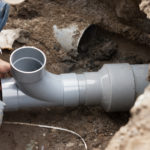Creating a safe and comfortable home environment for seniors is essential to ensure their well-being and quality of life.
Here are some tips and modifications you can consider:
- Declutter and Organize: Remove tripping hazards like loose rugs, clutter, and unnecessary furniture. Keep pathways clear and well-lit.
- Install Handrails and Grab Bars: Install handrails along staircases and in the bathroom near the toilet and shower to provide support and prevent falls.
- Improve Lighting: Adequate lighting is crucial. Use bright LED bulbs, and consider motion-activated lighting in hallways and bathrooms to make it easier for seniors to navigate at night.
- Non-Slip Flooring: Use non-slip mats or rugs in the bathroom and kitchen, and consider replacing slippery tile or hardwood floors.
- Accessible Bathrooms: Make bathrooms more accessible by installing a walk-in shower with a bench and a handheld showerhead. Add grab bars in strategic locations.
- Raised Toilet Seats: Install raised toilet seats to make it easier for seniors to sit down and stand up.
- Kitchen Modifications: Lower kitchen cabinets and counters if possible. Store frequently used items within easy reach. Install lever-style handles on faucets and cabinet doors.
- Bedroom Accessibility: Make sure the bedroom is easily accessible, with clear pathways and appropriate lighting. Consider a hospital-style bed if necessary for comfort and mobility.
- Comfortable Seating: Choose comfortable and supportive chairs and sofas that are easy to get in and out of. Add cushions and pillows for extra comfort.
- Remote Control Access: Simplify remote controls and devices with larger buttons and labels. Consider voice-activated technology for controlling lights, thermostats, and entertainment systems.
- Emergency Alert System: Install a medical alert system that allows seniors to call for help in case of an emergency.
- Temperature Control: Ensure the home is at a comfortable temperature year-round. Consider a programmable thermostat for automatic temperature adjustments.
- Fall Prevention: Secure rugs and carpets to the floor, and use non-slip tape on stairs. Remove any obstacles from walkways.
- Medication Management: Set up a system for managing medications, such as pill organizers or automatic dispensers.
- Home Security: Install a home security system to provide peace of mind. Include features like video doorbells for added security.
- Regular Maintenance: Keep up with home maintenance tasks to prevent issues like leaks, broken stairs, or malfunctioning appliances.
- Comfortable Furniture: Invest in comfortable, supportive furniture, including an adjustable bed or chair if needed.
- Social and Recreational Spaces: Create spaces where seniors can socialize and engage in activities they enjoy. Consider a reading nook or a garden area.
- Regular Health Checkups: Encourage regular health checkups and assessments for vision, hearing, and mobility to address any issues promptly.
- Emotional Support: Ensure there are opportunities for social interaction and emotional support, whether through family visits, senior companion services, friends, or local senior centers.
Remember that the specific needs of seniors can vary widely, so it’s essential to tailor these modifications to their individual requirements.
Contact a Home Care Agency
A home care agency can provide valuable assistance in creating a safe and comfortable home environment for seniors by offering a range of services and support.
Here’s how a home care agency can help:
- Assessment and Planning: Home care agencies often start by conducting a thorough assessment of the senior’s living space and their specific needs. They can identify potential hazards and make recommendations for modifications.
- Home Modifications: Some home care agencies offer home modification services or can refer you to specialists who can make the necessary changes to the home, such as installing grab bars, ramps, or stairlifts.
- Safety Checks: Home care aides can perform regular safety checks around the home to identify and address potential hazards.
- Emergency Response: Home care agencies may have emergency response plans in place to handle unexpected situations and ensure seniors’ safety.
- Communication with Healthcare Providers: Home care professionals can communicate with doctors and other healthcare providers to ensure that seniors receive the appropriate medical care.
- Coordination of Services: Home care agencies can coordinate various services, including medical care, therapy, and social activities, to provide a holistic approach to senior care.
Working with a home care agency can provide families with peace of mind, knowing that their loved ones are receiving the support and care they need to age in place safely and comfortably. It’s essential to choose a reputable agency with trained and qualified caregivers who can meet the specific needs of the senior.





